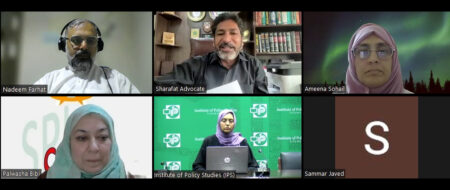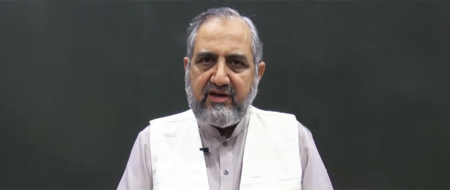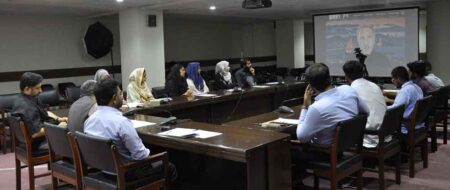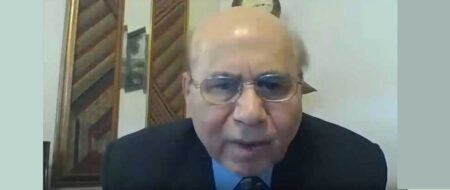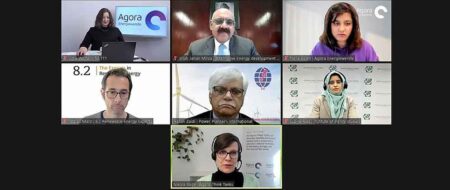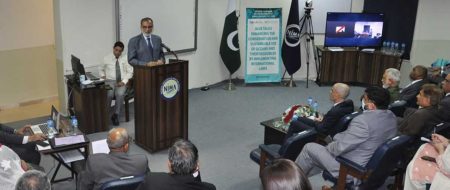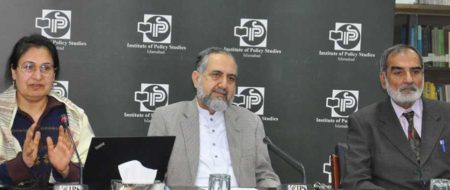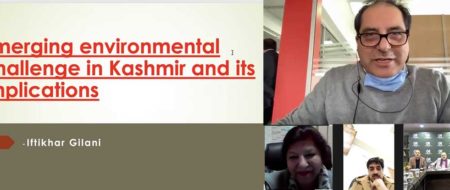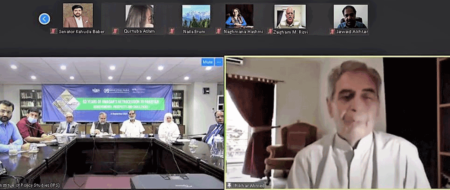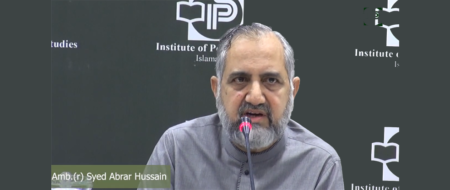‘South Asia, Neo-Communal Settings and Implications for Social Democracy’
South Asian scholars express solidarity against caste-based and religious discrimination
Distinct and considered political representation of Dalits in South Asian countries is a prerequisite for their socio-economic uplift. This was the unanimous viewpoint of social scientists and scholars from Pakistan, India and the UK, mostly representing the Dalit or scheduled classes and Muslims of the Subcontinent, who were speaking at a webinar organized by IPS on August 21, 2020.
The first-of-its-kind dialogue, titled ‘South Asia, Neo-Communal Settings and Implications for Social Democracy’ connected Dalit and Muslim scholars across political boundaries to understand and discuss the conditions, deprivations and reservations of the Dalits in South Asia, especially Pakistan and India, while trying to identify a way forward for their elevation.
The panelists
included Prof Meena Dhanda from University of Wolverhampton; Prof Dr Sumeet
Mhaskar from Jindal Global University; Prof Amit Thorat from Jawaharlal Nehru
University; Dr Abhay Kumar, Indian scholar and journalist; Asif Aqeel, a
journalist and researcher from Pakistan’s Christian-Dalit community; Faqir
Shiva Kachhi, president, Darawat Ittehad; Sarwan Kumar Bheel Advocate, a social
activist from Tharparkar; Heba Ahmed, research scholar,
Centre for Political Studies, JNU; Dr Sunaina Arya, JNU research fellow and
editor of Dalit Feminist Theory: A Reader.
From IPS’
research faculty Dr Shahzad Iqbal Sham, Sufi Ghulam Hussain, Nadeem Farhat
Gilani, and Agha Noor Muhammad Pathan participated in the discussion, while the
session was chaired by Khalid Rahman, the Institute’s executive president.
Dalit speakers
from Pakistan said the upper caste Hindus were a small minority and they cannot
represent the Dalits who were in a majority. They said the upper castes
continue to ignore the issues of the scheduled castes and hence should not be
seen as their representatives. The situation in India was no different where
Lok Sabha too hardly featured any representatives from the scheduled castes
although they constituted a major share of the population.
The speakers were unanimous that scheduled caste did not enjoy their due share of representation at any level. They said the Dalits were constantly being deprived of education, employment and socio-economic opportunities whereas their rights were being violated.
Aqeel was of
the view that the Dalit Christians in Pakistan have been linked with menial
jobs as part of their caste, which was hampering them in pursuing
socio-economic uplift.
Mhaskar
pointed out that things were not very different in India, as the structures of
exclusion generated from the Brahminism and spread across South Asia. He said
caste was a big concern that permeated into every domain and created many
issues. He said there was a long list of exclusionist areas including
education, jobs, scholarships and representations that need to be analyzed. The
Prevention of Atrocities Act was enacted in India in 1989 however it has not
been able to fully address these issues.
He added that
there were provisions to compensate for the deprivation of scheduled castes in
Indian constitution but firstly they are not well-implemented, secondly they
are applicable only for civil services which constitute just 4-6 percent of the
jobs in India. On the other hand, these deprivations are still largely
prevalent in the private sector. He also drew some parallels between the
conditions and issues faced by Muslims and Dalits in India.
Abhay Kumar
reflected as how caste-based discrimination is labelled as inter-religious
issues under a politically-motivated campaign of Islamophobia. He said under
this trend the term Islamophobia was not only directed at the Muslim religion
but also the society.
Heba stressed
that the burden of being an exclusionist minority had increased manifold in
India with the introduction of Citizenship (Amendment) Act, 2019. She said the
Indian government had a poor track record of dealing with its minorities, and
CAA was just another example manifesting the fact. She said Muslims in India
face mass state discrimination every day of their lives. Heba was of the
opinion that persecution of minorities in India or Pakistan had a domino effect
in the other country.
Arya said
societies in South Asia were historically divided on the basis of privileges
and deprivations. Extending the feminist view of Dalits in India, she presented
an example of a case where a Dalit woman was gang raped but the court ruled out
the possibility of her being raped as the identification of rape was done on
the basis of a person’s consent or its absence. In this case the victim was
Dalit and hence did not have the ‘agency’ to refuse or reject. The judgement,
according to the speaker, institutionalized the scheduled caste deprivation in
a new way. She said it was necessary that lower caste people should attain
positions of authority so that their voice could be heard.
Thorat viewed that the caste system in South Asia was prevalent for thousands of years and the mindset cannot change in a mere 70 years after the adoption of the Indian constitution. He said there were provisions in the constitution to address these issues and if they were implemented in letter and spirit, the Dalits and other marginalized castes, which should rather be seen as free human beings, would not have been in the position they were in now. The historic wrong of the society must be corrected, he added.
Dhanda opined
that there were some common communal problems on both sides of the border
because of which the scheduled castes and underprivileged people had to face a
lot of difficulties. The first step towards the resolution of these issues,
according to her, was the acceptance of truth, so we need to create conditions
where the truth gets heard. If we could resolve problems of minorities locally,
she added, we would be giving less space to the people who resist it, and this
was where the change will start to take shape. Leadership should always lie in
the hands of those who have experienced discrimination themselves in order to
bring about meaningful change in society, she added.
Rahman, while concluding the session, said there
were many aspects associated with the issue such as religious, economic,
political and societal. He said Hindutva had received official support in India
and as a result had proliferated into every domain of life. He said the
solution lies in educating and uplifting the scheduled castes and supporting
them to have a strong voice and legislative support.



